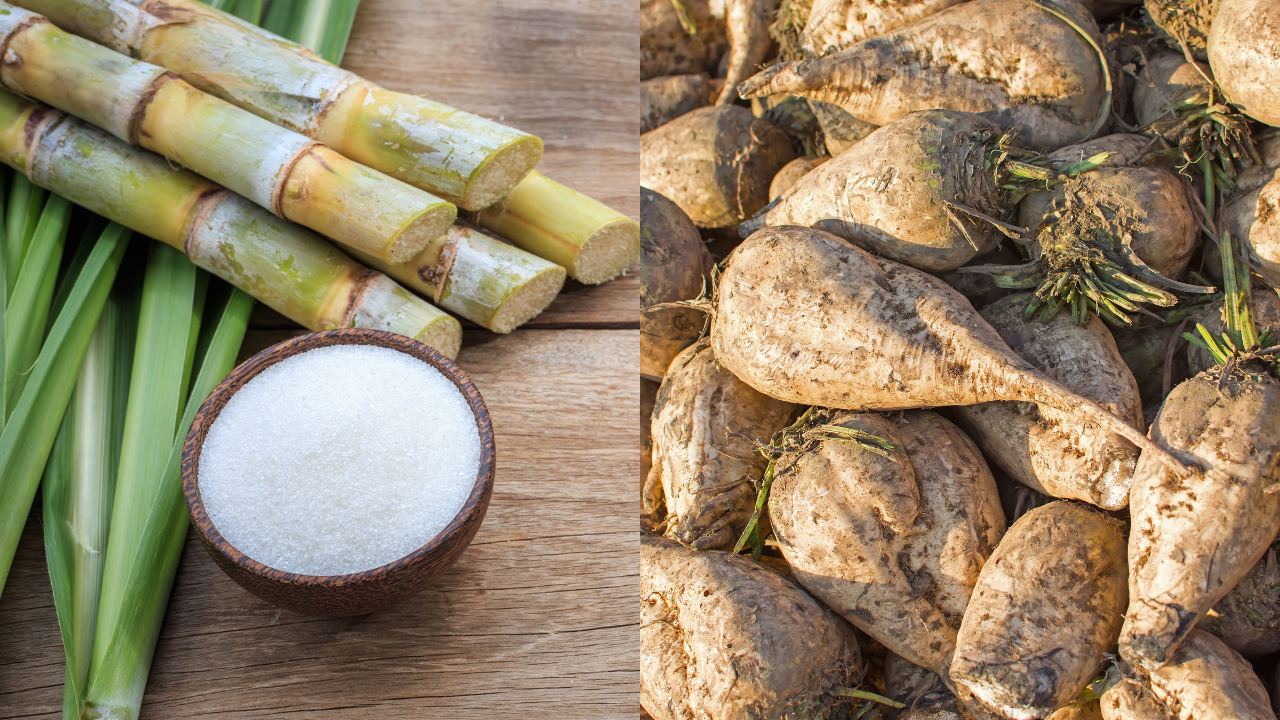The sourcing of beet sugar vs cane sugar affects farming impact in the sugar industry.
The sourcing of beet sugar vs cane sugar affects farming impact in the sugar industry.
Blog Article
Discover the Uses and Advantages of Beet Sugar Vs Cane Sugar in Your Daily Diet Plan
Discovering the distinctive high qualities of beet and cane sugar exposes more than simply their sweetening capacities; it highlights their distinct influence on health and cookeries. Beet sugar, known for its refined taste, is frequently favored in fragile treats, whereas cane sugar, with its hint of molasses, adds richness to robust recipes. Each kind holds its very own nutritional profile and glycemic implications, inviting a deeper understanding of their functions in a balanced diet plan and sustainable intake techniques.
Origin and Production Processes of Beet and Cane Sugar

The distinctive environments and dirt kinds required for growing sugar beets and sugarcane add to distinctions in their farming techniques and geographic circulation, affecting the economics and sustainability of their production. beet sugar vs cane sugar.
Nutritional Comparison In Between Beet Sugar and Cane Sugar
Regardless of stemming from different plants, beet sugar and cane sugar are nutritionally really comparable, both mainly consisting of sucrose. Each offers concerning 4 calories per gram, equating to approximately 16 calories per teaspoon. Structurally, both sugars are made up of about 99.95% sucrose, with minimal quantities of other substances like dampness and trace element, which do not substantially modify their dietary accounts.

Ultimately, when choosing in between beet sugar and cane sugar based upon nutritional material alone, both offer identical benefits and drawbacks as they are essentially types of the same particle-- sucrose, giving fast energy without other nutrients.
Influence On Wellness: Glycemic Index and Caloric Material
Discovering further Visit Website into the effects of beet sugar and cane sugar on wellness, it is vital to consider their glycemic index and calorie content. The glycemic index (GI) of both beet and cane sugar is around 65, classifying them as high-GI foods, which can cause fast spikes in blood glucose degrees.
Each kind of sugar contains about 4 calories per gram, making their calorie web content matching. For those keeping track of calorie intake, particularly when handling weight or metabolic health conditions, recognizing this equivalence is crucial (beet sugar vs cane sugar). However, too much consumption of any type of high-calorie, high-GI food can add to health issues such as weight problems, heart problem, and insulin resistance.
Environmental and Economic Considerations of Sugar Manufacturing
Beyond health and wellness impacts, the production of beet and cane sugar likewise raises significant environmental and financial concerns. Sugar beet growing has a tendency to require cooler climates and has a reduced geographical impact compared to sugar cane, which prospers in exotic regions. Both crops are intensive in terms of water use and land line of work, potentially leading to logging and water deficiency. Financially, the global sugar market is very unstable, affected by changes in worldwide profession plans and aids. Numerous nations incentivize sugar production with monetary support, skewing market value and affecting small-scale farmers negatively.
In addition, the usage of chemicals and fertilizers in both beet and cane sugar farming can cause dirt degradation and air pollution, further affecting biodiversity and local water bodies (beet sugar vs cane sugar). The selection between cultivating sugar beet or cane usually depends upon regional environmental conditions and financial elements, making the sustainability of sugar manufacturing a complex concern
Culinary Applications and Flavor Distinctions
While the environmental and economic aspects of sugar production are indeed considerable, the choice in between beet and cane sugar also influences cooking applications and flavor profiles. Beet sugar, stemmed find out here from the sugar beet plant, is understood for its incredibly neutral preference. This makes it a functional active ingredient in cooking, where it does not change the flavor of other components. It dissolves swiftly and is perfect for use in cakes, cookies, and breads.
Cane sugar, drawn out from sugarcane, commonly maintains molasses traces, which impart a distinctive richness and deepness. This small molasses taste enhances the complexity of baked items, sauces, and marinades. It is especially favored in things where a caramel undertone is desired, such as in brownies or gingerbread. The mild variant in dampness web content between beet and cane sugar can influence the structure and consistency of recipes, making cane sugar a preferred selection for certain dishes that profit from its unique residential properties.

Conclusion
In conclusion, both beet and cane sugar have unique beginnings and manufacturing processes, offering similar dietary profiles with slight distinctions in sodium material and taste. While their effect on wellness, especially concerning glycemic index and Clicking Here calories, is equivalent, the option between them often steams down to environmental, economic variables, and certain culinary needs. Recognizing these facets can assist customers in making informed choices that straighten with their health and wellness objectives and taste choices.
Report this page